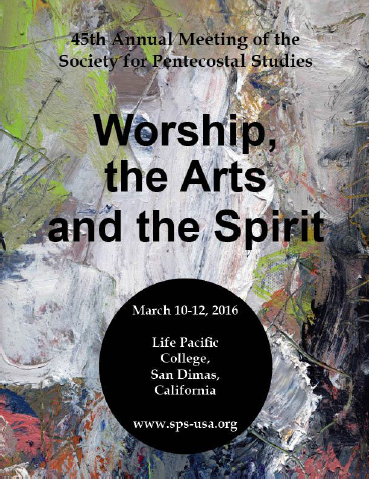Description
The marriage of popular music and Pentecostal worship is well documented. Its advocates point to meaningful experiences for the worshiper, or more broadly church growth and the younger demographics of Pentecostal congregations as evidence of its efficacy. Its opponents highlight popular music’s secular or profane associations, or the contemporary congregational song (CCS) genre’s commercialisation, individualisation, and lack of theological weight in its lyrics. These are the battle lines drawn for the “worship wars” of the last 20 years. While some of the more acrimonious contentions have dissipated in recent popular and academic literature, underlying presuppositions and arguments have not necessarily been resolved. This paper seeks to freshly re-examine the marriage of popular music and Pentecostal worship from the perspectives of Pentecostal theology and musicology. This paper begins by exploring popular music’s somatic, emotive, and metaphysical qualities. Those qualities are also identified in the contemporary congregational songs (CCS) utilised in Pentecostal worship. Following this, the Pentecostal values of embodiment, experience, and encounter are examined. An alignment will be drawn between somatic popular music and the Pentecostal theology of embodiment. One will also be drawn between the emotive capacity of popular music, and the experiential orientation of Pentecostal Christianity. Finally, popular music’s unlanguable and liminal elements will be aligned with Pentecostals’ theology of encounter. In so doing, this paper proposes a justification for the marriage of popular music and Pentecostal worship. At the same time, it raises the problematic nature of the conflation between popular music values and contexts, and those of Pentecostal worship. This problem will be addressed in part through a concept called vernacular music. Vernacular music provides a bridging framework and is particularly applicable to CCS. The paper will also demonstrate that CCS as an expression of Pentecostal worship are constantly subject to a negotiation of values by songwriters, worship leaders, church leaders, and congregations. The marriage of popular music and Pentecostal worship has been a contentious issue since its emergence. This paper proposes that musically, theologically, and culturally, this marriage is a logical and evidently fruitful one. However, it equally articulates the potential dangers of an unreflective wholesale adoption of secular popular music into Pentecostal worship.
“Popular Music and Pentecostal Worship: A Match Made in Heaven?”
The marriage of popular music and Pentecostal worship is well documented. Its advocates point to meaningful experiences for the worshiper, or more broadly church growth and the younger demographics of Pentecostal congregations as evidence of its efficacy. Its opponents highlight popular music’s secular or profane associations, or the contemporary congregational song (CCS) genre’s commercialisation, individualisation, and lack of theological weight in its lyrics. These are the battle lines drawn for the “worship wars” of the last 20 years. While some of the more acrimonious contentions have dissipated in recent popular and academic literature, underlying presuppositions and arguments have not necessarily been resolved. This paper seeks to freshly re-examine the marriage of popular music and Pentecostal worship from the perspectives of Pentecostal theology and musicology. This paper begins by exploring popular music’s somatic, emotive, and metaphysical qualities. Those qualities are also identified in the contemporary congregational songs (CCS) utilised in Pentecostal worship. Following this, the Pentecostal values of embodiment, experience, and encounter are examined. An alignment will be drawn between somatic popular music and the Pentecostal theology of embodiment. One will also be drawn between the emotive capacity of popular music, and the experiential orientation of Pentecostal Christianity. Finally, popular music’s unlanguable and liminal elements will be aligned with Pentecostals’ theology of encounter. In so doing, this paper proposes a justification for the marriage of popular music and Pentecostal worship. At the same time, it raises the problematic nature of the conflation between popular music values and contexts, and those of Pentecostal worship. This problem will be addressed in part through a concept called vernacular music. Vernacular music provides a bridging framework and is particularly applicable to CCS. The paper will also demonstrate that CCS as an expression of Pentecostal worship are constantly subject to a negotiation of values by songwriters, worship leaders, church leaders, and congregations. The marriage of popular music and Pentecostal worship has been a contentious issue since its emergence. This paper proposes that musically, theologically, and culturally, this marriage is a logical and evidently fruitful one. However, it equally articulates the potential dangers of an unreflective wholesale adoption of secular popular music into Pentecostal worship.






